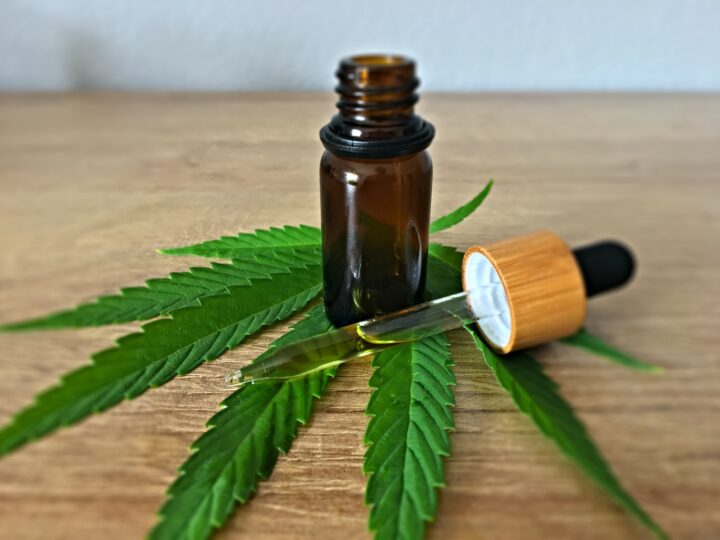Organic Vs. Non-Organic CBD: Making an Informed Choice for Your Health
Discover the difference between organic and non-organic CBD, the benefits of choosing organic, and the potential risks of non-organic options.
We’ll also discuss factors to consider when selecting CBD products.
By the end, you’ll have the knowledge you need to prioritize your health when it comes to CBD.

Understanding the Difference: Organic Vs. Non-Organic CBD
When choosing between organic and non-organic CBD, it’s important to understand the key differences in order to make an informed decision for your health.
- Organic CBD is derived from hemp plants that have been grown without the use of synthetic pesticides, herbicides, or fertilizers. This means that the CBD you’re consuming is free from potentially harmful chemicals that can accumulate in the plant during cultivation.
- Non-organic CBD may come from hemp plants that have been treated with these synthetic substances, which could potentially end up in the final product.
Benefits of Choosing Organic CBD Products
By choosing organic CBD products, you can reap the benefits of consuming a product that’s free from potentially harmful chemicals and has been produced in a more natural and environmentally friendly manner.
Organic euphoria CBD products are made from hemp plants that have been grown without the use of synthetic fertilizers, pesticides, or genetically modified organisms (GMOs). This means that you aren’t exposing yourself to any harmful residues or toxins that may be present in non-organic CBD products.
Additionally, organic farming practices promote soil health and biodiversity, helping to preserve the environment for future generations. Choosing organic CBD products also supports sustainable agriculture and encourages ethical practices within the industry.
Potential Risks of Non-Organic CBD
If you choose non-organic CBD, you may be exposing yourself to potential risks associated with the presence of harmful chemicals and toxins. Non-organic CBD products are often derived from hemp plants that have been grown with the use of synthetic fertilizers, pesticides, and herbicides. These chemicals can contaminate the CBD extract and end up in the final product.
Consumption of CBD contaminated with such chemicals may lead to adverse health effects, including nausea, vomiting, dizziness, and even long-term organ damage. Additionally, non-organic CBD products may also contain residual solvents from the extraction process, such as butane or propane, which can be harmful if ingested.
To ensure your safety, it’s recommended to choose organic CBD products that are free from harmful chemicals and toxins.
Factors to Consider When Selecting CBD Products
To make an informed choice for your health, consider several factors when selecting CBD products.
- First, look for products that have been third-party tested for quality and purity. This ensures that the CBD content is accurate and that the product is free from harmful contaminants.
- Additionally, consider the source of the CBD. Hemp-derived CBD is legal in all 50 states, while marijuana-derived CBD may have legal restrictions.
- Next, check the extraction method used. CO2 extraction is the most common method and is considered safe and efficient.
- You should also consider the potency of the product and determine the appropriate dosage for your needs.
Lastly, read customer reviews and check for any certifications or awards that the brand may have received.
Taking these factors into account will help you choose a high-quality CBD product that suits your health needs.
Making an Informed Decision for Your Health
When making an informed decision for your health, consider the factors discussed in the previous subtopic to ensure you select the best CBD product for your needs. By taking these factors into account, you can make a choice that aligns with your preferences and goals.
Remember to evaluate the source of the CBD, whether it’s organic or non-organic, as this can impact the overall quality and safety of the product. Additionally, be sure to assess the extraction method used, as some methods may result in a higher concentration of contaminants.
It’s also important to consider the CBD concentration and dosage, as this will determine the effectiveness and potential side effects. Lastly, take into account your individual health needs and consult with a healthcare professional to determine the best CBD product for you.
Conclusion
In conclusion, when it comes to choosing CBD products for your health, it’s important to prioritize organic options.
Organic CBD offers numerous benefits, including higher quality and purity, as well as a reduced risk of harmful chemicals and contaminants.
By considering factors such as sourcing, testing, and certifications, you can make an informed decision that supports your overall well-being.
Choose organic CBD for a healthier choice that aligns with your values and promotes a more natural approach to wellness.


